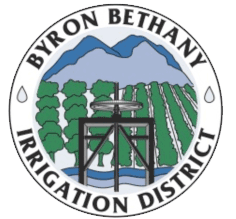Brentwood, CA (November 1, 2021) – Last month, the Los Vaqueros Reservoir Expansion Project (Project) passed a significant milestone in officially filing agreements needed to form a Joint Powers Authority. This important milestone puts a group of Local Agency Partners one step closer to Project implementation.
The Byron-Bethany Irrigation District is a member agency of the San Luis & Delta-Mendota Water Authority, a Local Agency Project Partner.
Los Vaqueros Reservoir is an off-stream reservoir that was originally built by Contra Costa Water District (CCWD) in 1998. The original reservoir capacity was 100,000 acre-feet and in 2012, CCWD completed the first phase of expansion to hold 160,000 acre-feet.
Expanding Los Vaqueros to a new capacity of 275,000 acre-feet and adding new conveyance facilities will provide environmental, water supply reliability, operational flexibility, water quality and recreational benefits. Those benefits earned the expansion $470 million of the $2.7 billion in water storage investments approved by voters when Proposition 1 passed. The remainder of the project costs will be covered by federal and local partners.
Transforming a local reservoir into a regional facility requires partnerships. Agencies in the Bay Area and Central Valley, serving urban areas, agricultural land and wildlife refuges, have come together to move this expansion forward. A critical step in forming this partnership is the creation of the Los Vaqueros Reservoir Joint Powers Authority (JPA).
The JPA establishes the governance of the Project among the partnering agencies and provides the organizational framework for Project design, construction, operation, maintenance and funding. JPA members will bring perspectives from the agency or agencies they represent and work collaboratively to meet the needs of all agencies involved. The JPA will hold its first official public meeting in mid-November.
Looking forward, the Project team is continuing work to secure the necessary permits, approvals and agreements to begin construction. At this point, construction is scheduled to begin in the winter of 2023.
More information about the JPA is available at www.losvaquerosjpa.com.
Additional project information is available below, including a monthly newsletter and project update summary.

